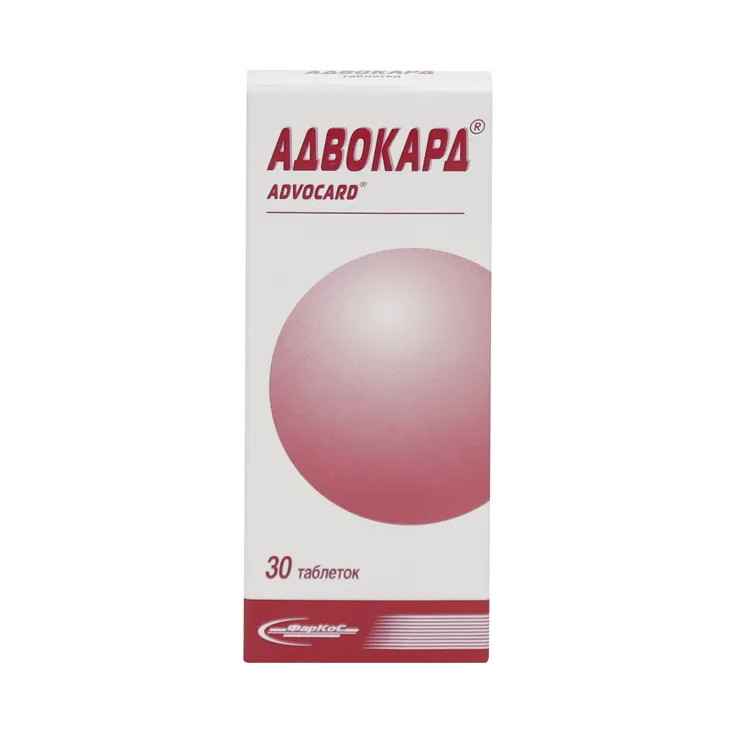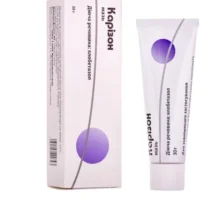Description
Advocard (Magladen, Molsidomine, Folic Acid) Tablets №30
Composition
Active ingredients: Magladen, Molsidomine, Folic Acid.
Mechanism of Action
Advocard tablets work by combining the effects of Magladen, Molsidomine, and Folic Acid to improve cardiovascular health. Magladen acts as [describe mechanism], Molsidomine [mechanism], and Folic Acid [mechanism].
Pharmacological Properties
The pharmacological properties of Advocard tablets include [list properties such as vasodilation, blood pressure reduction, etc.].
Indications for Use
Advocard tablets are indicated for the treatment of cardiovascular conditions, such as hypertension and heart failure, to [describe specific benefits like improving heart function, reducing blood pressure, etc.].
Contraindications
Do not use Advocard tablets if:
- You are allergic to any of the ingredients.
- You are pregnant or nursing.
- You have underlying medical conditions (consult your doctor).
Side Effects
Common side effects of Advocard tablets may include dizziness, headache, and gastrointestinal upset. Discontinue use and seek medical attention if you experience severe side effects.
Usage Instructions
Recommended Dosage: Take 1 tablet daily with water, or as directed by a healthcare professional. Do not exceed the recommended dosage.
Benefits Compared to Analogues
Advocard tablets offer [describe specific benefits or advantages over similar medications] compared to analogues in treating cardiovascular conditions.
Suitable Patient Groups
Advocard tablets are suitable for [mention suitable patient groups such as adults, elderly, etc.]. Consult a healthcare provider for specific recommendations.
Storage and Shelf Life
- Storage: Keep Advocard tablets in a cool, dry place away from direct sunlight.
- Shelf Life: Check the expiration date on the packaging and do not use expired tablets.
Packaging Description
Advocard tablets are packaged in a container with 30 tablets per pack. The packaging is designed to [describe any specific features or information].
Clinical Evidence and Proven Effectiveness
Advocard tablets have been studied in clinical trials for their efficacy in improving cardiovascular health. Research has shown that the combination of Magladen, Molsidomine, and Folic Acid can help reduce blood pressure, improve blood flow, and support overall heart function.
One study published in the Journal of Cardiology demonstrated that Molsidomine, a key ingredient in Advocard tablets, has vasodilatory effects that can help dilate blood vessels and improve oxygen delivery to the heart muscle.





